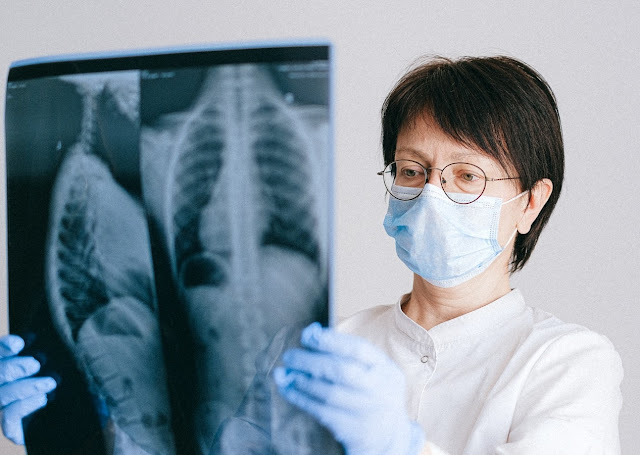Being a Better Gluten Free Community Citizen
Sometimes I encounter people who are convinced that Celiac is the only valid reason to adopt the Gluten Free diet. It's especially bad if the GFD is used in the context of weight loss. But what if, gluten does more damage than just ruin the small intestines of the estimated 1% of people with Celiac? What if gluten worsens a lot of problems that are still called "minor" problems by health officials (IBS, ME/CFS, Migraines, POTS, Lyme, Q Fever, PCOS, Metabolic Syndrome, Fibro and more)? Why do so many people, even others on the Gluten Free Diet (GFD) react badly to the sudden popularity of the GFD? What if you don't have a Celiac Disease diagnosis? Should you abandon the GFD?
As the gluten free diet gains popularity, there are increasingly strident warnings that it can be unhealthy, that it is a limited diet, and that "amateurs" joining the "fad" will make life difficult for Celiacs who need the diet. But are any of these charges (and others) true? What's the real reason that some voices in the gluten free community are making signalling statements designed to draw a distinction between "Celiacs" and "faddists." Is it even reasonable to say it's a "fad" or to attempt to limit the GFD to only confirmed Celiacs?Recent history has pointed several fingers of blame at gluten. It's claimed as a cause for many ills that women have been traditionally told is just "getting older" or "hypochondria." I've pointed out how charged discussions on the GFD can get with regard to women's health in I'm Gluten Free: Finding Your Voice. Books have been written specifically to blame wheat as the cause of many modern illnesses, and not just those of women.
So let's deal with just 4 of the objections to, anyone other than Celiacs, using the GFD:
- It's not for weight loss - Maybe, but for people without Celiac who nevertheless have an immune reaction to gluten, it can cause thyroid dysfunction and that certainly can lead to weight gain. If someone loses weight because they stopped that process, that's a good thing and a good reason to get a Celiac screening if they haven't had one.
- You will eat worse foods while you're gluten free and lose nutrients you should be getting from wheat - This is the most common objection. But anyone who struggles with their body enough to be willing to choose the difficult GFD voluntarily, is aware that wheat flour is bromated and must be enriched to replace the nutrients already lost in milling. The claim that you get significant folate or B12 from wheat flour is ludicrous. Gluten is known to cause infertility and anemia in reactive people. If it was true that avoiding gluten would cause a deficiency of these two nutrients, then Celiacs could never recover, or deliver babies without neural tube defects. But they do.
- You need grains to be healthy - this has also been completely debunked by the Paleo's and in fact was debunked back in the early 20th century by Arctic explorers of the Yukon territory. This one deserves all the derision it gets, because it's nonsense. Anyone can do any diet badly and make it unhealthy. But, assuming people will mess it up, is inane. Grains may be a healthy part of some people's diets, but there's nothing in them that vegetables can't deliver better.
- You are putting people who "really need" the diet in jeopardy OR You are wheatsplaining - This might have some truth if you allow restaurants to get away with cross contaminating food with gluten, or if your dedication to the diet doesn't involve at least being aware of changes to the legislation on food labeling and food production practices which affect everyone on the GFD. We're all in this together and it's important to support one another.
A disturbing thread in the debate is whether or not "a little" gluten is allowable in a gluten free diet. Even certified GF foods have PPM limits which allow tiny amounts of gluten (less than cross contamination levels). The medical community always regards with suspicion (sometimes virulent scorn) any MD that champions a diet, and especially if the goal includes aspects of a medical diet along with the advice on weight loss. It happened with Atkins, then Keto, and now it's happening to South Beach. We should not be surprised, this is business as usual, but it's also not honest to say it's bad just because a doctor is selling a book about it. If it benefits people's health, then the doctor is just doing his or her job.
On the other hand, we shouldn't give in to being too permissive because it confuses food prep in restaurants and increases danger for people with Celiac. It can also lead us to simultaneously support the GFD, and dismiss any "work" involved in maintaining it by saying it doesn't relate to us because we're not Celiacs. An example would be, dismissing the need to participate in labeling laws, reporting bad products, or taking actions to support advocacy groups.This is why I chose the subject of this blog to be Gluten Free, not Celiac. Celiac is a vitally important part, but it's a limited part of the Gluten Free movement. We don't all need to be activists for the GFD, but we do need to stand up for our community, especially those with diagnosed Celiac Disease, when it's in danger. And right now, there are dangers, such as a food manufacturing bloc that doesn't want to label GF foods very strictly.
There is also a group of Pharma companies that are downplaying the benefits of the GFD. Possibly because they are already formulating drugs to nullify some of the effects of Celiac Disease (no word yet on whether or not it will also nullify the NCGS effects, be FDA approved for use in NCGS cases, or will nullify the fertility effects, or the thyroid effects... etc). This is not the only drug in development either. The reasoning that we should wait for the magic drug, is dangerous because it leaves us dangling (see below for more about dangling).
Some gluten is unavoidable today, so it would be great to reduce the effects, especially the multiple organ effects. And I'm pleased that usually the language now includes the phrase "Celiac and gluten related illness" instead of only Celiac. It also doesn't take much work to identify the bright lights in the GFD community and see that they respect many of the researchers involved.
To be honest, I think the most lucrative direction for business is in recipe development and working toward a safe, transparent and trustworthy gluten free food manufacturing system. Many businesses have already invested heavily in the GFD and that many business forecasters can't be wrong. I think we were wrong about embracing wheat and related grains as the staples of our Western diet and I don't think it's heresy to say so. Gluten may be ok for some, even most people, but for others, the drawbacks are too much. I have faith in us that we can come up with an alternative food system without removing the choice of eating wheat and/or gluten from those who are ok with it. Although I have this belief, I don't think everyone should quit gluten with or without reasons.
So, for how to be a good gluten free citizen, if you're not Celiac, and even if you're doing it just for weight loss... As long as you keep to the Celiac standard as much as you can when ordering food in a restaurant, as long as you keep current and pay attention to labeling trends and how it may affect not just you, but everyone who depends on a gluten free diet... you won't be doing much harm to the Celiac community.The trouble is, too many people skip these two actions and talk freely about "a little gluten is ok", or they tell restaurant personnel that cross contamination is ok, or buy into the falsehoods being marketed such as "spelt is gluten free" or "wheat is fine, it's just frankenwheat that is bad." You can imagine how annoying this is to a Celiac who may have spent time in a hospital while they were recovering from their disease and suffers from chronic secondary illnesses such as diabetes or thyroid problems which get worse when there is gluten in the diet.
About frankenwheat... this is an important subject. Many health oriented people are avoiding wheat because of the ways in which it has been "ruined" by modern agricultural practices. That's a reasonable thing to do. Some of the frankenwheat points are correct if you're only looking at it from a general health standpoint (herbicide ripening, breeding to maximize gluten production, etc). But spreading the idea that gluten is less important than the other negatives of wheat drives two misunderstandings. First that wheat is the only or the "main" gluten source (false), and second, that somehow people who are affected by gluten might recover if "ancient" wheat (such as einkorn, or spelt) is exclusively used (also false). Some theories say, if it's processed by fermentation or sprouting, then it's wholesome again. Except it isn't, not if your body is attacking the gluten proteins, and doing collateral damage to you.
Even though I don't have endoscopy proven Celiac Disease, and even though my gastroenterologist said no when I asked if I should do a gluten challenge to test for Celiac (I assume that means there's a real reason why I shouldn't)... I do have NCGS, the new emerging form of gluten related illness, which has received enough medical support to have a name, but not enough to have a test everyone agrees on, or a treatment other than the same treatment that Celiacs use. For this reason, when I asked my gastro what to say in a restaurant, he said "Just say you're Celiac, it's the only safe way."Based on my body's reaction to gluten, our society has been ignoring the "other" Celiac disease for decades. The one where the tests fail to detect the damage being caused, such as the thyroid damage directly caused by the body's reaction to gluten -- there's no test for that. Or the PCOS and metabolic syndrome caused by a body unable to take in proper nutrition due to gluten interference, or the migraines triggered directly by gluten, no test for those either. In giving treatment to only those with small intestinal damage, the medical establishment limited the definition too far and harmed countless people's lives. NCGS, or I would prefer, Gluten Syndrome, should always have been part of the definition of Celiac.
And the secondary illnesses that manifest for people affected by gluten? Often ending with Non-Hodgkins Lymphoma? What of them?
Celiacs should be routinely followed for secondary illness in the same way that diabetics are for retinal damage (and also the other diabetes specific downstream manifestations of their disease). But the cart is already before the horse and there's no help for it but to do something inconvenient and effective.
I'm exhibiting 8 of the conditions listed on that secondary illness page (without a positive Celiac test), and that page doesn't even list Endometriosis, PCOS or Metabolic Syndrome. Juvenile Idiopathic Arthritis should've triggered a Celiac screening test when I was 16. It might've saved me from the nightmare of the other manifestations of NCGS. Even if it might've been negative, I would've remembered it later.
Years later, when I realized it was the gluten that caused multiple illnesses I struggled with, but never quite managed to conquer or control, with drugs, diet/exercise or meditation; or even alternative therapies like supplements and chiropractics or acupuncturists. And I realized that doctors have systematically avoided the subject. That my doctors assumed my obesity is my own fault and my illnesses dramatized, then, I became angry, and rightly so.
Like many women at such a point int their lives, I tended to become an evangelist and state the issues in absolute terms. That may be a bit over-dramatic, but to disparage it is to support a medical system that keeps patients in the dark, and causes them to be left dangling without any hope for decades.
More reading, scientific:
- https://www.ncbi.nlm.nih.gov/pubmed/11194235 (celiac and diabetes type 1)
- https://www.ncbi.nlm.nih.gov/pubmed/19014325 (celiac and thyroid illness)
- https://www.ncbi.nlm.nih.gov/pmc/articles/PMC3725235 (celiac and other autoimmune illnesses)
- https://www.ncbi.nlm.nih.gov/pmc/articles/PMC5296194/ (celiac and liver problems)
- https://www.webmd.com/diet/a-z/g-free-diet (the author of the book being reviewed is a confirmed Celiac, yet they felt the need to muddle it with another message about weight loss)
- http://www.bistromd.com/gluten-free/introducing-gluten-free-weight-loss (cyber squatting on the acronym, MD, to sell a product)
- https://health.clevelandclinic.org/the-surprising-truth-about-gluten-free-food-and-weight-loss/ (there is no mention of gluten affecting the thyroid)
- https://health.usnews.com/health-news/articles/2012/04/11/is-a-gluten-free-diet-smart-for-weight-loss (an uhealthy diet is still possible, with any diet, including the government designed DASH diet so, they're saying a lot with nothing new)
- http://slatestarcodex.com/2014/03/30/wheat-much-more-than-you-wanted-to-know/ (a kind of Snopes for science questions, but he says basically "yeah true, but so what?" to nearly all the concerns so it's not very useful)





